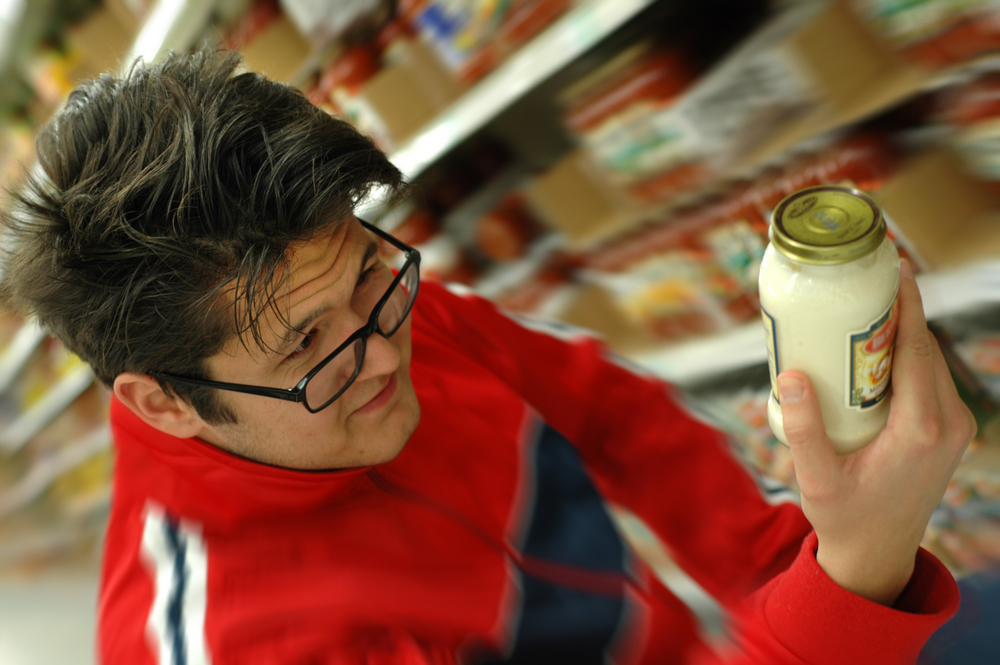Send your question to Umbra!
Q. Dear Umbra,
Is there anything new and notable going on in the world of green product labels?
Yours,
Umbra F.
Seattle, Wash.
A. Dearest Umbra,
What a good question! Funny, I was just thinking about this very topic.
There are in fact two big things going on in the wild world of product labels: The gummint has issued its first new guidelines for eco-terms in more than a decade, and California voters are embroiled in a meaty debate on whether to label food that contains GMOs.
First, the guidelines. (Stay awake, shoppers!) The Federal Trade Commission, a sort of watchdog for the marketplace, spent the last five years updating its Green Guide [PDF], which was first published in 1992 and last revised in 1998. Needless to say, there has been a surge in green products (and in “green” products) over the last few years, which I believe is officially known as the Green Is the New Black Epoch. So these new rules are welcome.
The labels on your favorite products won’t change overnight, if at all. But the guidelines tighten up the ways companies can use terms like “green,” “eco-friendly,” “biodegradable,” and “recyclable.” They also give the FTC grounds to stand on when it decides to nab blatant greenwashers. (As far as I can tell, said companies are given a stern warning and one more chance to do things right. Mess up again, and fines start at $16,000. Depending on the size of your company, that is or is not something to sneeze at.)
However, the FTC intentionally left out some of the squishiest terms: “natural,” “organic,” and “sustainable.” This was partly because the agency says it “lacks a sufficient basis to provide meaningful guidance” — methinks someone got tired after five years of work — but mostly because those terms are already defined, and sometimes even regulated, by the FDA and the USDA.
This omission is critical, says Urvashi Rangan, an eco-labeling expert who is director of safety and sustainability for Consumers Union. “What’s in this document is helpful and important, but what it didn’t contain is even more important,” says Rangan, whose organization offered comments during the revision process. “FTC is in a position to set baseline principles for all of these terms, and we hope it will raise the bar next time around.”
Meanwhile, Rangan’s advice to consumers: Get savvy about which terms are ill-defined and therefore basically meaningless (“natural” is a prime offender, and others include “free-range” and “hypoallergenic”). And bone up on certifications that do mean something, from USDA Organic to Animal Welfare Approved. None of these systems is perfect, but they at least let us know companies have jumped through a hoop or two before shouting about their greenness.
Speaking of shouting, let us turn to that brouhaha in California. Supporters of Prop 37 want manufacturers to label food made with genetically engineered ingredients. They point out that there haven’t been long-term health studies on the effects of GMOs, and that 50 countries require such labeling, including India, China, Japan, and the nations of Europe. The opposition, funded in large part by DuPont, Monsanto, and the Grocery Manufacturers Association, claims the law would increase household food costs, lead to frivolous lawsuits, and do other terrible things to the American Way of Life.
This is an important battle to know about, no matter where you live. California’s influence is immense, whether the issue at hand is vehicle emissions or agriculture. If this ballot item passes, it could transform how food is made, sold, and labeled all across the country, as wise writers including Mark Bittman, Michael Pollan, and Grist’s own food team have pointed out.
The way I see it, both Prop 37 and the FTC guidelines are small steps in the right direction for those of us who want to know what’s really in the products we buy. Now we just need to turn those small steps into graceful leaps.
Stickily,
Umbra




